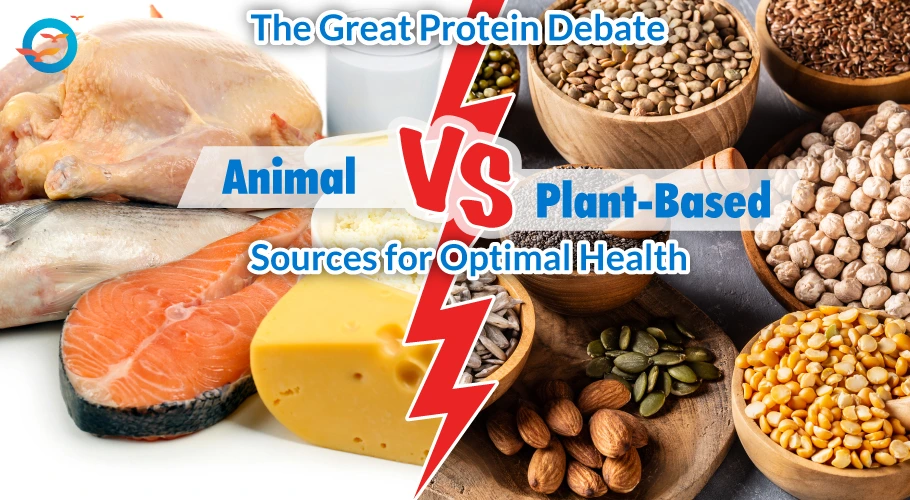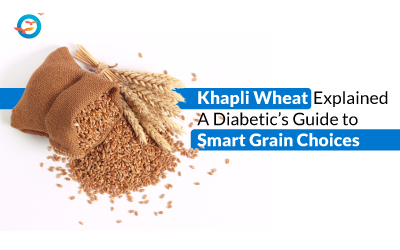Why Choose Plant-Based Protein Over Animal Protein?

Are plant proteins healthier than animal proteins?
Protein is a fundamental nutrient that plays a vital role in a healthy diet, serving as the building block for tissues, including muscles, bones, skin, and hair. Adequate protein intake is essential for maintaining overall health, as it facilitates the production of enzymes, hormones, and other biomolecules necessary for various bodily functions.
The concept of a complete protein is crucial in this context. A complete protein is one that contains all the necessary amino acids in the right proportions, allowing the body to utilize them efficiently.
In the ongoing debate about optimal nutrition, the choice between plant-based and animal protein has become a hot topic. As more people turn to plant-based diets for health, environmental, and ethical reasons, the question of protein sources takes center stage.
While animal proteins have long been considered the gold standard for muscle building and overall nutrition, recent research and growing awareness are shining a spotlight on the benefits of vegan protein sources. This shift is not just a passing trend but a scientifically backed movement towards more sustainable and health-conscious eating habits.
Let's explore why plant-based proteins are emerging as a smart choice for both our bodies and the planet.
Understanding Animal Protein: Benefits & Concerns
Animal protein, derived from sources such as meat, poultry, fish, eggs, and dairy, is considered a complete protein, meaning it contains all the essential amino acids the body needs for various functions, including muscle repair, immune support, and hormone production.
One of the primary advantages of animal protein is its high bioavailability, making it easier for the body to absorb and utilize. Additionally, it is rich in essential nutrients like vitamin B12, iron, and zinc, which are crucial for maintaining overall health.
The downside of animal products is they come with extra acid, lot of choleterol and fat. They can trigger a higher inflammatory response in your body leading to various chronic diseases like heart disease, type 2 diabetes and certain types of cancers.
Vegan Protein:
Most surprising truth is there are many vegan sources of protein that give 2.5 times of more protein than eggs and chicken.
Top Vegan Protein Sources for a Balanced Diet
1. Seeds
Top 3 seeds
|
Name |
Protein in grams |
|
Hem seeds |
32 |
|
Pumpkin seeds |
30 |
|
Water melon |
28 |
2. Nuts
|
Name |
Protein in grams |
|
Peanuts |
26 |
|
Almonds |
21 |
|
Pistachios |
20 |
Tip: One should consume nuts by soaking for 8–10 hours to make them more alkaline and bio-available.
3. Dals as protein sources:
|
Name |
Protein in grams |
|
Urad/black gram |
25 |
|
Moong/green gram/lobia/black eye beans/rajma |
24 |
Dals are best consumed whole followed by split with the skin followed by split without skin. Additionally, dals contain lot of fiber which help in slow release of glucose perfect to bring down sugars. They also contain minerals
Bhoona chana or roasted chickpeas contain 22 g of protein and 19 g of fiber when eaten with skin. So this choice of food is helpful.
Sattu—powdered bhuna chana helps satisfying the needs of proteins and carbohydrates. This is largely consumed in north India after lot of intense physical work.
4. Grains
Grains are looked down upon as they contain a lot of carbohydrates. Both grains and dals
give us a complete set of amino acids. Interestingly, the protein content of grains is not neglible it is upto 10-14 g
|
Name |
Protein in grams |
|
Quinoa |
14 |
|
Amaranth/rajgira |
13.5+ |
|
Buckwheat |
13+ |
|
Jowar/Bajra |
11-12 |
|
Wheat |
10 |
|
Rice |
Lower than 10 |
Do not neglect greens - Interestingly if you wonder where do the elephants hippos rhinos get their protein from? The answer is greens. But they consume it in larger amounts.
Humans too get proteins from greens but in lesser proportion. Spinach, broccoli and kale contain 3 g of protein. Greens help one maintain a good amount of hemoglobin and increase oxygen carrying capacity:
Plant based Vs animal protein:
A well-planned vegetarian diet can provide all the necessary protein and nutrients for optimal health, making it an attractive choice for those looking to adopt a healthier lifestyle. Plant-based protein sources, such as legumes, beans, lentils, and tofu, are not only rich in protein but also high in fiber, vitamins, and minerals.
Unlike animal-based protein sources, vegetarian options tend to be lower in saturated fat, cholesterol, and calories, which can help reduce the risk of chronic diseases such as heart disease, diabetes, and certain types of cancer.
Furthermore, a vegetarian diet has been shown to promote weight loss, improve gut health, and support healthy blood pressure levels. With the added benefits of being more environmentally friendly and sustainable, it's clear that vegetarian protein is a better choice for overall health and wellbeing.
One of the key considerations when it comes to vegetarian protein is ensuring that the body receives all the essential amino acids necessary for optimal health. While plant-based protein sources are rich in amino acids, they often lack one or more of the essential amino acids that the human body cannot produce on its own.
This is where the concept of complementing amino acids comes in. By pairing different plant-based protein sources, individuals can create a complete amino acid profile that provides all the necessary building blocks for protein synthesis. A classic example of this is the combination of dal (lentils) and rice, which is a staple in many Indian households.
The lentils provide the amino acid lysine, while the rice provides the amino acid methionine, making the combination a complete protein source. Similarly, pairing whole grains like brown rice or quinoa with legumes like chickpeas or black beans can also provide a complete amino acid profile. By understanding the importance of complementing amino acids, individuals can ensure that they are getting all the necessary protein and nutrients from their vegetarian diet.
Plant-based protein powder is needed if you are hitting the gym and planning for muscle building. The surprising fact is you can get between 50-85 g of protein from just 100 g of protein powder like pea protein, rice protein, hemp protein and soy protein.
Do you want to know more about How to reduce sugar and fat?, visit our blog.
Conclusion:
When it comes to incorporating protein into one's diet, it's essential to consider individual factors such as medical conditions and level of activity. For instance, individuals with kidney disease may need to limit their protein intake to alleviate strain on their kidneys, whereas athletes or those who engage in strenuous physical activity may require more protein to support muscle growth and repair.
Additionally, people with certain medical conditions, such as diabetes or obesity, may benefit from a higher protein diet to help regulate blood sugar levels or support weight loss. On the other hand, individuals with liver disease may need to consume less protein to avoid putting excessive strain on their liver.
Ultimately, determining the right amount of protein depends on a person's unique health needs and lifestyle, and it's always best to consult with a healthcare professional or registered dietician to determine the most suitable protein intake.
FAQs
Is plant protein healthier than animal protein?
Yes, plant protein is lower in fat and cholesterol and helps reduce the risk of diseases.
Can I get enough protein from plants?
Yes! Foods like lentils, beans, nuts, and seeds provide plenty of protein.
Which plant foods have the most protein?
Hemp seeds, pumpkin seeds, peanuts, and lentils are high in protein.
Do plant proteins have all amino acids?
Some do, but you can combine foods like beans and rice for a complete protein.
Can plant protein help with weight loss?
Yes! Plant proteins have fiber that keeps you full longer and helps with weight management.
Which is better for heart health: plant or animal protein?
Plant protein is better because it’s lower in fat and cholesterol.
Does plant protein help with diabetes?
Yes! It helps control blood sugar and improves overall health.

